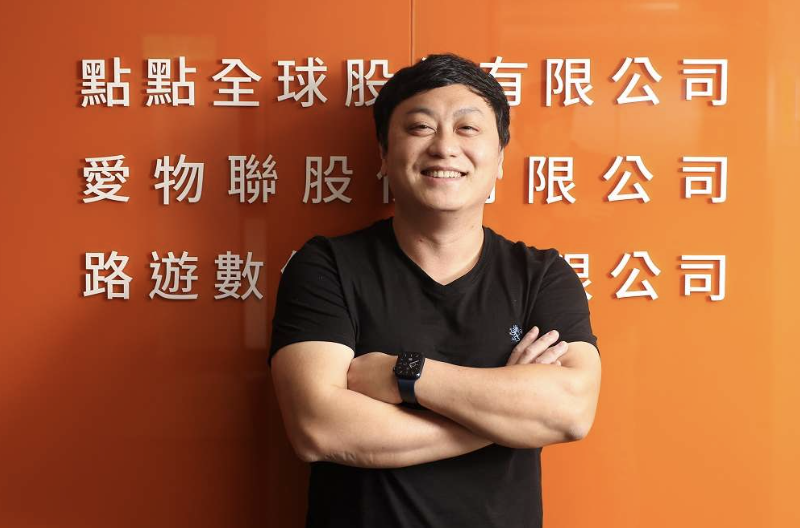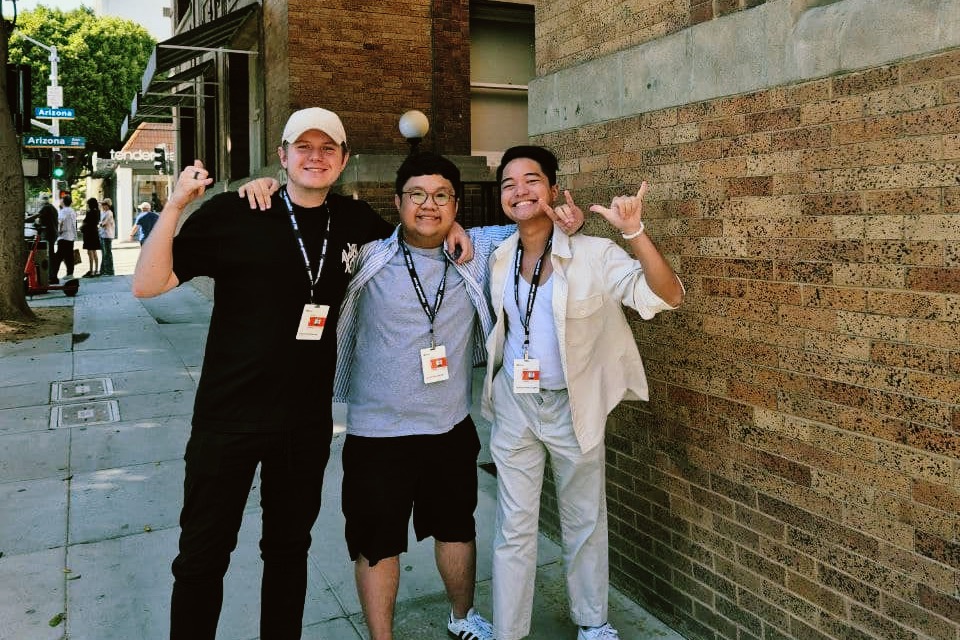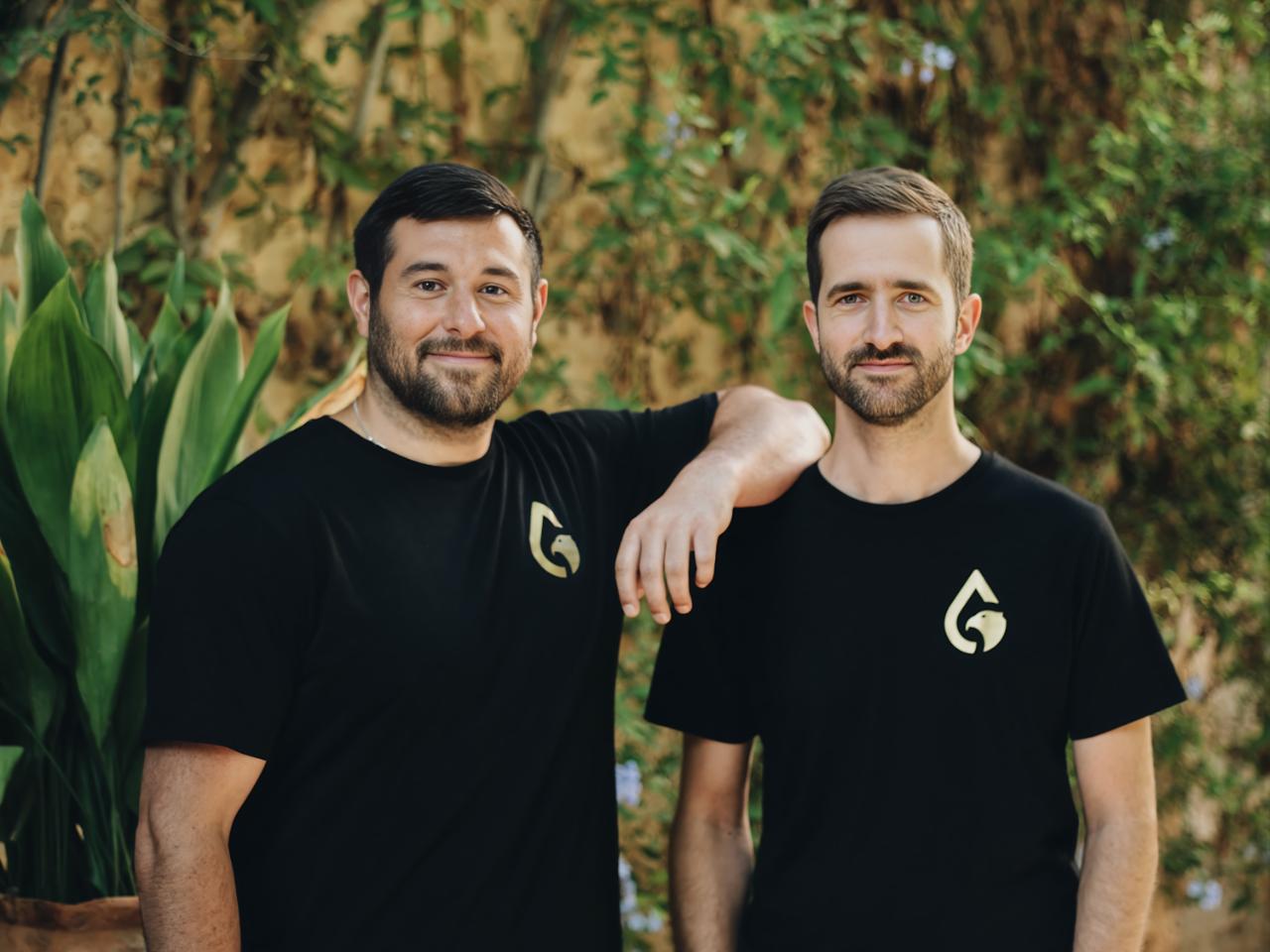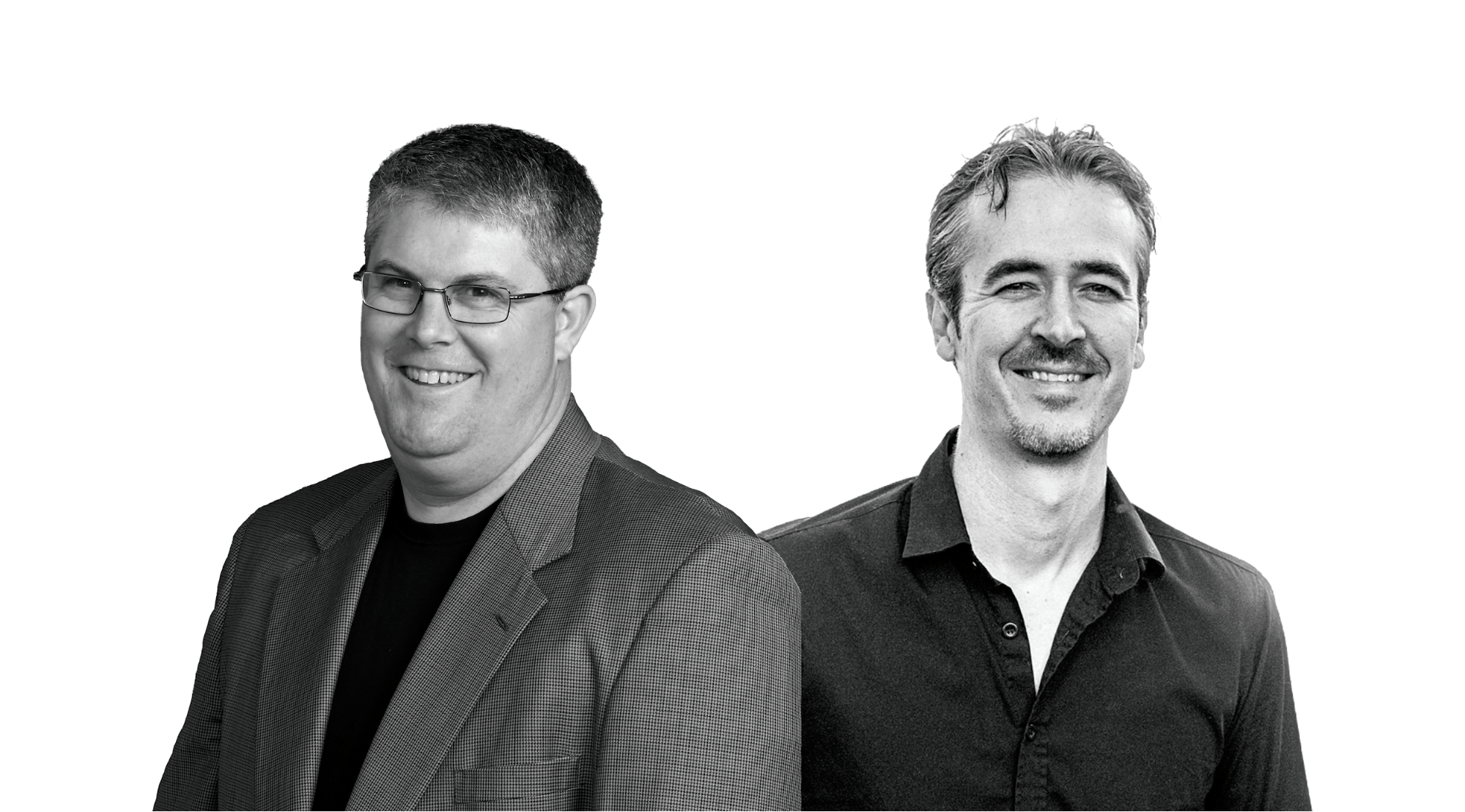By Sophie Chiu, AppWorks Principal

AppWorks has known Hsieh Jui-Ting, the founder of DotDot, for a long time, and he is more commonly referred to as Ting. Ting joined AppWorks #10 in 2014, bringing his third entrepreneurial venture, iIoT, to the program. We have walked alongside Ting for 10 years, and this year, we are fortunate to participate and lead the investment in DotDot, his current venture. This article will discuss the overall considerations behind this investment decision, including our long-standing relationship with Ting, the evolution of restaurant technology, and the tough battles DotDot aims to fight.
The Chapter Three for A Serial Entrepreneur
As a serial entrepreneur, Ting’s journey began during his university years. In 1998, he joined the renowned company at the time, pAsia, and contributed to the development of the world’s first Mandarin-based instant messaging software, CICQ, as well as the auction website CoolBid. Through pAsia, they secured investment from Intel, which was one of the legendary stories in Taiwan’s software startup history. However, it came to an end during the dot-com bubble in 2000-2001. (Editor’s note: The image of the founding team of pAsia, who appeared on the cover of a magazine in 1999 with great enthusiasm, was one of the inspirations for AppWorks founder Jamie and his university friends to establish Intumit, now a listed company in Taiwan.)
Ting’s experience at pAsia ignited his entrepreneurial journey. Shortly before graduating with a master’s degree, he came across a business opportunity through friends at the National Chiao Tung University’s CCCA (Campus Computer Communication Association). This opportunity was to build an employee benefits shopping platform for UMC called “UMC Store.” It became Ting’s second entrepreneurial venture, Dottech, in 2000. The platform achieved a GMV (Gross Merchandise Value) of US$7 million and was sold within two years. This marked the first chapter of Ting’s entrepreneurial journey.
After graduating, Ting paused his entrepreneurial plans due to losses in the stock market and joined Quanta as an IC design engineer, where he spent 11 years. This experience in IC and hardware design provided Ting with rich insights—from product design and customer development to leading teams. Ultimately, due to differences in commercial strategy with Quanta’s management, Ting decided to leave the well-compensated position and embark on the second chapter of his entrepreneurial journey.
With his technical expertise in hardware-software integration, Ting founded iIoT in 2014 with his own capital and joined AppWorks Accelerator #10. iIoT primarily provided routers and network services to retail and restaurant businesses, and thanks to its superior technology, it won the Taiwan Lottery contract in partnership with Taiwan Mobile. In 2016, Ting founded GoWiFi to do rental business for pocket WiFi routers. Both businesses achieved a significant market share within 2-3 years. Much like with UMC Store in 2000, Ting has always excelled at 0-to-1 entrepreneurship, building profitable small businesses.
However, Ting was not satisfied with this. From many iIoT clients, he discovered that the needs and pain points of small and medium-sized restaurant businesses were still unmet, and the restaurant market itself had vast potential for greater challenges. In 2019, Ting founded DotDot, specialising in services for small and medium-sized restaurant businesses, leading the QR code ordering trend in Taiwan. In 2024, DotDot Pay was launched, making DotDot the first non-banking institution in Taiwan to introduce SoftPOS (software point-of-sales) technology, officially entering the payments market.
This marks the third chapter of Ting’s entrepreneurial journey. After successfully founding several companies with sub US$10 million in revenue and profitability, he is now taking on the highly competitive payments market, aiming to build a company with hundreds of millions or even billions in revenue. This is no easy feat, especially as Ting will need to continually improve himself. He has excelled in guerrilla tactics and achieving significant success in niche markets, but the payments market is fiercely competitive, dominated by large players, and requires not only upgraded tactics but also greater determination. However, AppWorks colleagues who have known Ting for over a decade are confident in him, as he has never been one to give up easily. No matter how difficult or complex a project may be, Ting has always led his team to overcome challenges one by one. This perseverance stems from his deep understanding of his restaurant clients—so much so that Ting even opened a breakfast shop himself, personally standing at the grill to understand every operational pain point his clients face. He even filmed instructional videos teaching restaurants how to effectively deal with cockroach infestations.
DotDot’s Early Success
A deep understanding of restaurant clients is a critical factor in setting the right product and pricing strategies. The restaurant tech market is naturally constrained by the local economic conditions. In Taiwan and Southeast Asia, customers’ willingness to pay is much lower compared to developed countries. No matter how many features or how advanced the hardware and software, it’s often difficult to raise subscription prices. For example, the monthly subscription price for POS systems in the U.S. ranges from US$60-250, whereas in Taiwan, the range is US$35-65, and in Southeast Asia (excluding Singapore), it’s US$10-40. Although the cost of engineering talent varies by region, it still takes a significant amount of manpower to build these products, meaning that entrepreneurs in Greater Southeast Asia must be much more cost-conscious.
This was also the first strategy that DotDot adopted when it entered the restaurant tech space in 2019: instead of offering a full suite of high-end technology products, customers may need a simple module that directly solves their most pressing issue. As a result, DotDot first launched a simple receipt printer paired with LINE for QR ordering. Their hardware background meant that the printer was made with Taiwan’s lowest-cost DNA, offering a very affordable price. This hardware integration background also made the printer completely seamless to use—plug it in, and it starts receiving orders. DotDot’s initial strategy swept across small and medium-sized restaurants, and today, they have the support of more than 15,000 customers, with a very low churn.
DotDot’s success in the small and medium-sized restaurant sector highlights an eternal truth: for restaurant businesses, technology products are always considered a cost, and they just want something cheaper. With Taiwan facing the impacts of a labor shortage and high inflation, restaurants are striving to increase efficiency and reduce labor needs. This raises the question: should the entire design, operation, and usage of POS systems be reconsidered, or perhaps even eliminated altogether? I thoroughly enjoy brainstorming and discussing these kinds of ideas with Ting. His strategy is to offer different tiers of products for five main types of restaurant clients, allowing everything to be modular: online ordering, receipt printers, POS checkout systems, central system management for multi-location businesses, CRM management, self-service kiosks, and more. Each type of restaurant can get the product and pricing that best suits them, without being forced into a one-size-fits-all option. This is where Ting’s product design philosophy and strategy differ greatly from most other players in the market.
The Tough Battle for DotDot Pay
As mentioned earlier, the restaurant tech industry is limited by the local market’s economic conditions and scale, which means the potential for growth in Taiwan’s restaurant tech sector may be constrained. With this in mind, integrating fintech seems inevitable. This is the same success model demonstrated by companies like Square and Toast in the U.S. since 2009-11, both of which now have a market cap of tens of billions of dollars.
Before DotDot, Taiwan’s restaurant tech providers didn’t fully replicate the U.S. business model, likely because Taiwan’s banking system, through card machines or existing software payment systems, already covered non-cash payments for the top 30% of large restaurants. Additionally, with the launch of LINE Pay in Taiwan in 2015 and Apple Pay in 2017, restaurant payments had multiple options, making payments not an obvious pain point in need of solving.
While not the biggest pain point for customers, it was still an important business development choice for a restaurant tech startup. From the beginning, DotDot invested in the R&D of SoftPOS technology, which allows various mobile phones and tablet devices to become payment terminals through software. It took several years and nearly a million dollars to obtain certification from international card organizations, and in 2023, DotDot acquired a third-party payment license in Taiwan. Through DotDot Pay, DotDot aims to replicate the success of Toast and Square, becoming a restaurant fintech company.
However, this is undoubtedly a tough battle. LINE Pay made headlines in January this year with its record-breaking debut on the stock market in Taiwan, rising 195% in a single day. This is backed by LINE’s over 90% market share among instant messaging users in Taiwan, driving an annual transaction volume of NT$600 billion. In the restaurant industry, LINE Pay has a penetration rate of around 50-60%, mainly among small and medium-sized restaurants. LINE Pay’s success proves that there is a huge demand for non-cash payments in the SMB restaurant sector. For DotDot Pay, the challenge lies in the fact that the high-end restaurant segment is dominated by bank card machines, the SMB segment is dominated by LINE Pay’s large member base, and other online payment providers like TapPay and Green World are also eager to join the competition. This seemingly red-ocean competitive environment may explain why most restaurant tech providers have opted not to enter the fray.
DotDot Pay’s current advantage is its existing base of 15,000 merchants as its first batch of users, but Ting believes that ultimately, the competition will come back to the core of restaurant technology itself. Even if fintech companies offer products or incentives to restaurant merchants, DotDot can best serve them with its complete, modular product line.
This is a highly uncertain situation, but the one certainty is that we’ve known Ting for a long time, and we know he always finds leverage points, overcomes obstacles, and climbs even bigger mountains. Meanwhile, we are taking stock of the startup community AppWorks has built in Greater Southeast Asia over the past 15 years, which includes nearly 20 restaurant tech companies that can collaborate and move forward together. We often organize entrepreneur roundtables in this region for professionals in specialized fields. The most recent one was a restaurant tech gathering in Kuala Lumpur in August, where DotDot and several Southeast Asian restaurant tech startups met to discuss the possibilities. Collaboration in expanding abroad may be another path, and the AppWorks community is the best support for entrepreneurs.
For Ting, who welcomed a baby girl this year, it seems that good things are happening both personally and professionally. As old friends, we are happy to share in his joy and support him in this new and bigger chapter of his entrepreneurial journey.




